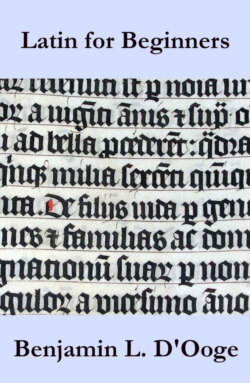Читать книгу Latin for Beginners - BENJAMIN L. D’OOGE - Страница 64
На сайте Литреса книга снята с продажи.
«118.» DIALOGUE[1] CORNELIUS AND MARCUS
ОглавлениеM. Quis est vir, Cornēlī, cum puerō parvō? Estne Rōmānus et līber?
C. Rōmānus nōn est, Mārce. Is vir est servus et eius domicilium est in
silvīs Galliae.
M. Estne puer fīlius eius servī an alterīus?
C. Neutrīus fīlius est puer. Is est fīlius lēgātī Sextī.
M. Quō puer cum eō servō properat?
C. Is cum servō properat ad lātōs Sextī agrōs.[2] Tōtum frūmentum est
iam mātūrum et magnus servōrum numerus in Italiae[3] agrīs labōrat.
M. Agricolaene sunt Gallī et patriae suae agrōs arant?
C. Nōn agricolae sunt. Bellum amant Gallī, nōn agrī cultūram. Apud eōs
virī pugnant et fēminae auxiliō līberōrum agrōs arant parantque
cibum.
M. Magister noster puerīs puellīsque grātās Gallōrum fābulās saepe
nārrat et laudat eōs saepe.
C. Mala est fortūna eōrum et saepe miserī servī multīs cum lacrimīs
patriam suam dēsīderant.
[Footnote 1: There are a number of departures from the normal order
in this dialogue. Find them, and give the reason.]
[Footnote 2: When a noun is modified by both a genitive and an adjective, a favorite order of words is adjective, genitive, noun.]
[Footnote 3: A modifying genitive often stands between a preposition and its object.]
* * * * *
«Second Review, Lessons IX-XVII, §§506-509»
* * * * *
